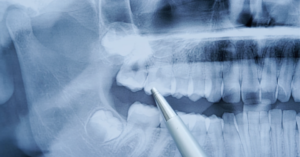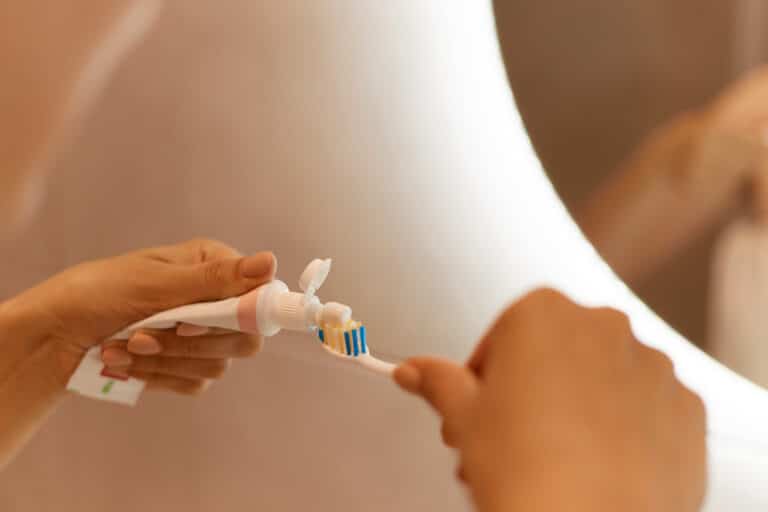What are wisdom teeth and why do they become impacted?
Most people know that wisdom teeth are the third set of molars that come in during late adolescence or early adulthood. But what many people don’t know is that wisdom teeth can become impacted (stuck and unable to erupt) due to lack of space in the jawbone. Impacted wisdom teeth can cause pain, infection, and damage to other teeth. In some cases, they may need to be extracted.

Wisdom tooth extraction methods
There are a few different methods for wisdom tooth extraction:
Traditional Wisdom Tooth Extraction
This is the most common method, and involves making an incision in the gum tissue and removing the tooth. This method can be difficult, and it may be necessary to cut into the bone to remove the tooth.
Laser Wisdom Tooth Extraction
This is a newer, less invasive method that uses a laser to loosen the tooth before it is removed. This method uses a laser to make a small opening in the gum tissue. The laser is used to remove the tooth and any surrounding bone.
Minimally Invasive Wisdom Tooth Extraction
This method involves making a small incision in the gum tissue and removing the tooth. This method is used when there is a small amount of bone surrounding the tooth.
Waterjet Wisdom Tooth Extraction
This is another newer method that uses high-pressure water to loosen the tooth before it is removed. This method has a lower risk of damage to the surrounding teeth and bone than traditional wisdom tooth extraction. However, there is still a small risk of damage.
Partial Wisdom Tooth Extraction
In some cases, only part of the wisdom tooth may need to be extracted. This is usually done when the tooth is only partially erupted.
To find out which method of wisdom tooth extraction is right for you, talk to your dentist or oral surgeon. Head down to WeSmile Dental for a consultation and our experienced dentists will thoroughly understand your condition before recommending a method of extraction. Make an appointment here.
Wisdom tooth extraction procedure – what’s it like?

Wisdom tooth extraction is usually performed by an oral surgeon. The procedure is typically done under local anaesthesia, which numbs the area around the tooth. You may also be given sedation to help you relax.
During the procedure, the oral surgeon will make an incision in the gum tissue and remove the tooth. In some cases, it may be necessary to cut into the bone to remove the tooth.
After the tooth has been removed, the area will be stitched up. A gauze pad will be placed over the area to help stop the bleeding.
How much does wisdom tooth extraction cost?
The cost of wisdom tooth extraction varies depending on the type of procedure, the number of teeth being removed, and the condition of the impacted teeth.
Talk to your dentist or oral surgeon about the cost of wisdom tooth extraction before having the procedure done.
Here at WeSmile Dental, we believe that everyone should have access to quality dental care, that is why we offer a variety of payment options and competitive pricing. You can find out more about our payment options and pricing here.
Can I use Medisave for wisdom tooth extraction?
Yes, you can use Medisave for wisdom tooth extraction. The amount that can be used depends on the number of teeth being extracted and the type of procedure.
For more information on using Medisave for wisdom tooth extraction, drop us a visit or call and we can advice you further based on your specific situation.
What are the risks of wisdom tooth surgery?
Wisdom tooth extraction is a relatively safe procedure. The vast majority of wisdom tooth extractions are performed without any problems. However, there is always a small risk of complications, such as damage to the surrounding teeth and bone, infection, and bleeding.
Your dentist or oral surgeon will discuss the risks of wisdom tooth extraction with you before the procedure. If you have any concerns, be sure to ask questions.
If you are having wisdom tooth extraction done at WeSmile Dental, our experienced dentists will take every precaution to ensure your safety and comfort. We use the latest technology and techniques to minimize the risk of complications. For more information on wisdom tooth extraction, you may view our wisdom tooth extraction page here or call us and we would be happy to answer any questions you may have.
What are the after-care instructions for wisdom tooth extraction?
After the procedure, it is important to take care of your mouth. Follow your dentist’s instructions for after-care. This may include:
- Rinse your mouth with warm salt water several times a day – This will help to reduce swelling and pain.
- Take over-the-counter pain medication to relieve any discomfort – Ibuprofen (Advil) or acetaminophen (Tylenol) can be taken as directed.
- Applying a cold compress to the area to reduce swelling – Ice packs can be applied to the outside of your face for 20 minutes at a time.
- Avoid using straws for the first 24 hours. Do not smoke for at least 24 hours after the procedure.
- Eat soft foods and drinking hot beverages for the first few days – Soft foods such as soup, pudding, and ice cream will be easier on your mouth. Avoid hot beverages such as coffee or tea as they can irritate your mouth.
- Brush your teeth carefully, but avoid the extraction site.
- Do not smoke or use tobacco products – This can delay healing and increase the risk of infection.
- Follow up with your dentist or oral surgeon as instructed – You will likely have a follow-up appointment to make sure the area is healing properly.
So… why get wisdom tooth extraction surgery?
Wisdom tooth extraction is usually recommended when the wisdom teeth are impacted or causing problems. Impacted wisdom teeth can cause pain, infection, damage to other teeth, and even cysts. Wisdom tooth extraction is a procedure that is often done to remove impacted wisdom teeth. Wisdom teeth can become impacted due to lack of space in the jawbone and can cause pain, infection, and damage to other teeth. In some cases, they may need to be extracted.
As aforementioned, wisdom tooth extraction surgery is a relatively safe procedure, but there is always a small risk of complications. Your dentist or oral surgeon will discuss the risks of wisdom tooth extraction with you before the procedure. If you have any concerns, be sure to ask questions.
After the procedure, it is important to take care of your mouth by following your dentist’s instructions for after-care and follow our tips above!
You’re now all equipped with knowledge of what to look out for before your procedure and what to do after your wisdom tooth extraction, so there’s nothing to fear!
It’s time to book yourself an appointment, we promise it’s less scary than it seems!


